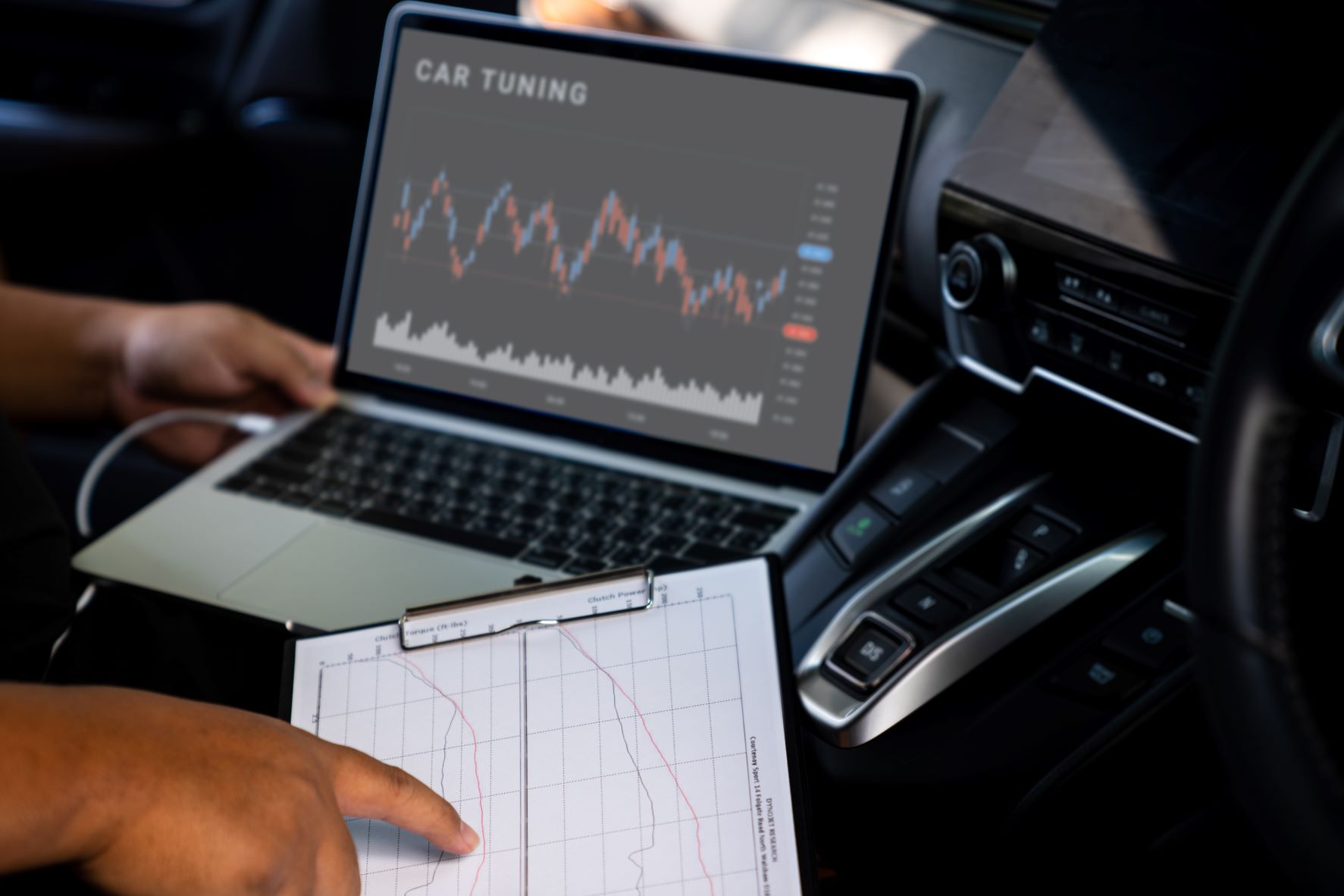
If you want your vehicle to continue to start easily and run smoothly, you should be taking it in for a tune-up at the mileage intervals suggested on your vehicle’s maintenance schedule. Although poor starting, lack of power, decreased fuel efficiency, and erratic performance are all signs that it is time for a tune-up, they also mean that you are long overdue. Instead, it is better to keep an eye on your odometer.
Once it is time for a tune-up, take your vehicle to a technician in a timely fashion. They will check on, adjust, and replace the following components of your car as needed, which is crucial to keep all parts working together…and you cruising with ease:
-
Diagnostics
When you go in for a tuneup, a technician will hook your car’s computer up to a computer diagnostic system. This will give insight into the health and performance of various systems in your vehicle, including its emissions, ignition, and fuel systems. This will help you to catch problems and weak components early, so they never get the chance to lead to detrimental damage.
-
Spark Plugs
Each of your engine’s cylinders has one spark plug. Over time, these decrease in efficiency, making it harder to ignite the air-fuel mixture inside your engine. A technician will swap these out during a tune-up, ensuring your car maintains optimum function of its combustion engine, starts up smoothly, remains fuel-efficient, retains its highest horsepower, and keeps its carbon emissions as low as possible.
-
Air Filters
Clean air is vital to your engine’s combustion processes. Depending on how dirty your air filters are, they will either be cleaned or replaced during a tune-up, ensuring your engine stays running smooth with plenty of oxygen running through its components. Your specific make and model will need a particular type of filter, so it is best to let a professional keep track of the timing of replacements and the type of air filter used.
-
Fuel Filter
Replacing your vehicle’s fuel filters is cheap, easy, and essential to its performance. As they progressively get dirtier, the flow of fuel to your engine will become increasingly restricted. This will eventually lead to signs of trouble such as stalling and a lack of power, which can cause additional damage to your car. Going in for regular tune-ups is a great way to make sure your fuel filters are never forgotten.
-
PVC Valve
Although your PVC valve will take a long time to wear out, it is important to change it out when it does. Neglecting to replace a bad PVC valve can lead to contamination, sludge build-up, oil leaks, and decreased fuel economy. A technician will check on this component during a tune-up, ensuring toxic substances stay out of your engine and oil, as well as preventing leaks by making sure a healthy crankcase pressure is maintained.
-
Ignition Components
Components of your car’s ignition system such as its distributor cap, rotor, and spark plug wires are important to renew regularly. All must be in working order to keep your car powerful and emissions low. The best way to stay on top of these components is to take your vehicle into a trusted auto shop at regular intervals—every 10,000 to 12,000 miles for non-electric ignition systems and 25,000 to 100,000 miles for newer models.
-
Bonus: Oil Change
If you procrastinate an oil change for long enough, it could cost you your car. An efficient way to ensure you are always on top of your oil swaps is to ask for one when you go in for a tune-up. During a tune-up, your hood will already be up… Asking a technician for both in the same visit will save you time, mental energy, and if you tend to put it off—the health and longevity of your ride.
If you live near West Valley in Utah and are due for a tune-up, take your car into Master Muffler today. Our vast experience, expertise, and attention to detail will ensure your car stays running strong so it keeps on carrying you forward long into the future.
Related Posts
Key Takeaways On average, passenger vehicle tires last 40,000 to 60,000 miles, depending on type, driving habits, and maintenance. Replace tires when tread depth reaches 2/32”, if damaged, or older than 10 years. Regular rotation, alignment, and proper inflation extend tire life. Aggressive driving, poor roads, and harsh weather shorten tire lifespan. Take advantage [...]
When you think about car maintenance, you probably focus on oil changes, tire rotations, and maybe even brake pad replacement. But what about your brake fluid? If you’ve ever wondered, “What does brake fluid do?” or “Why is brake fluid important?”, you’re not alone. Brake fluid might not be the most talked-about part of [...]
Is that high-pitched squeal from your brakes driving you—and everyone else—crazy? Don’t ignore it. Squeaky brakes aren’t just annoying, they’re your car’s way of saying something needs attention. Whether you're cruising through Salt Lake City or winding up Idaho’s mountain passes, here’s what’s likely going on, how you can fix it, and when it [...]





